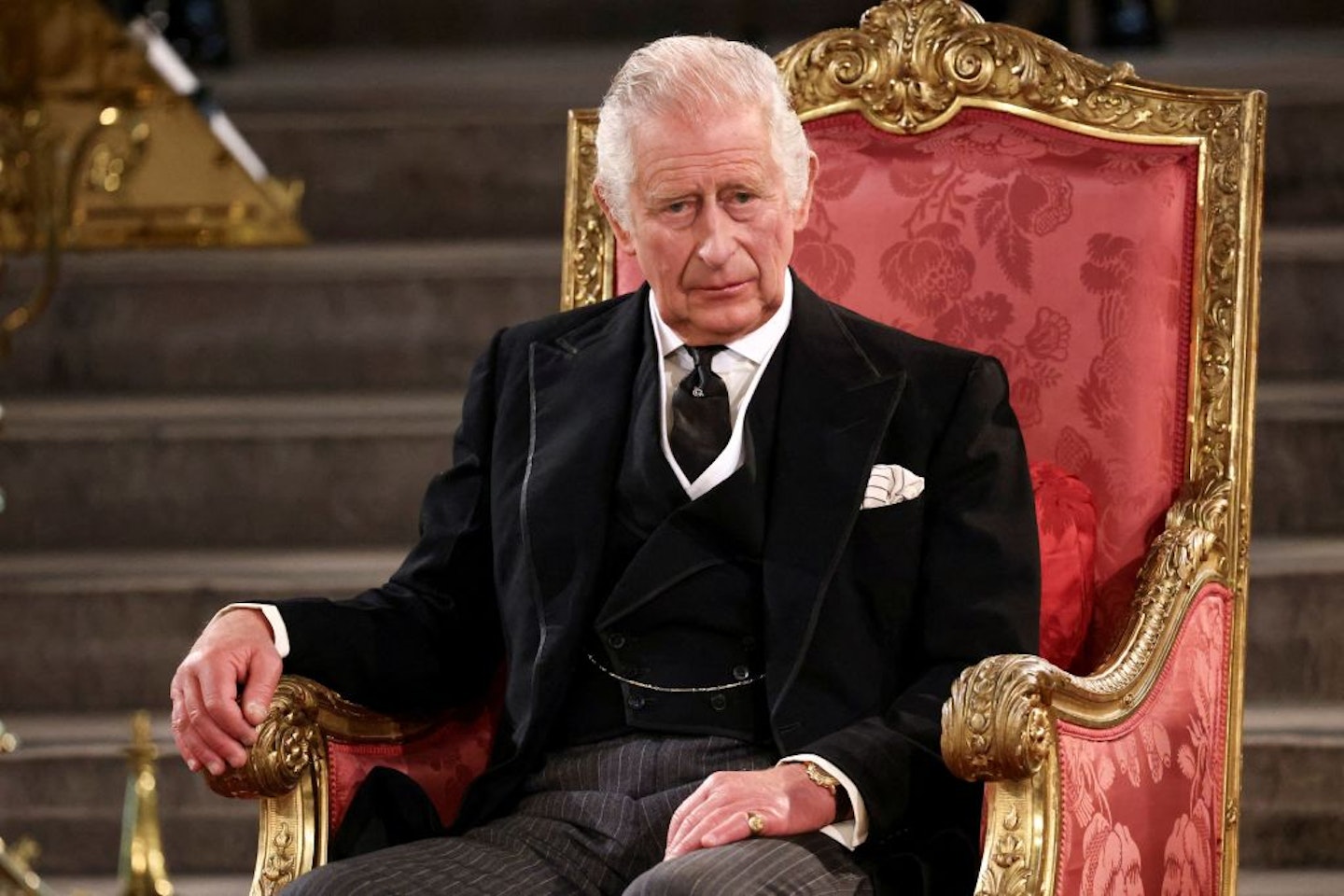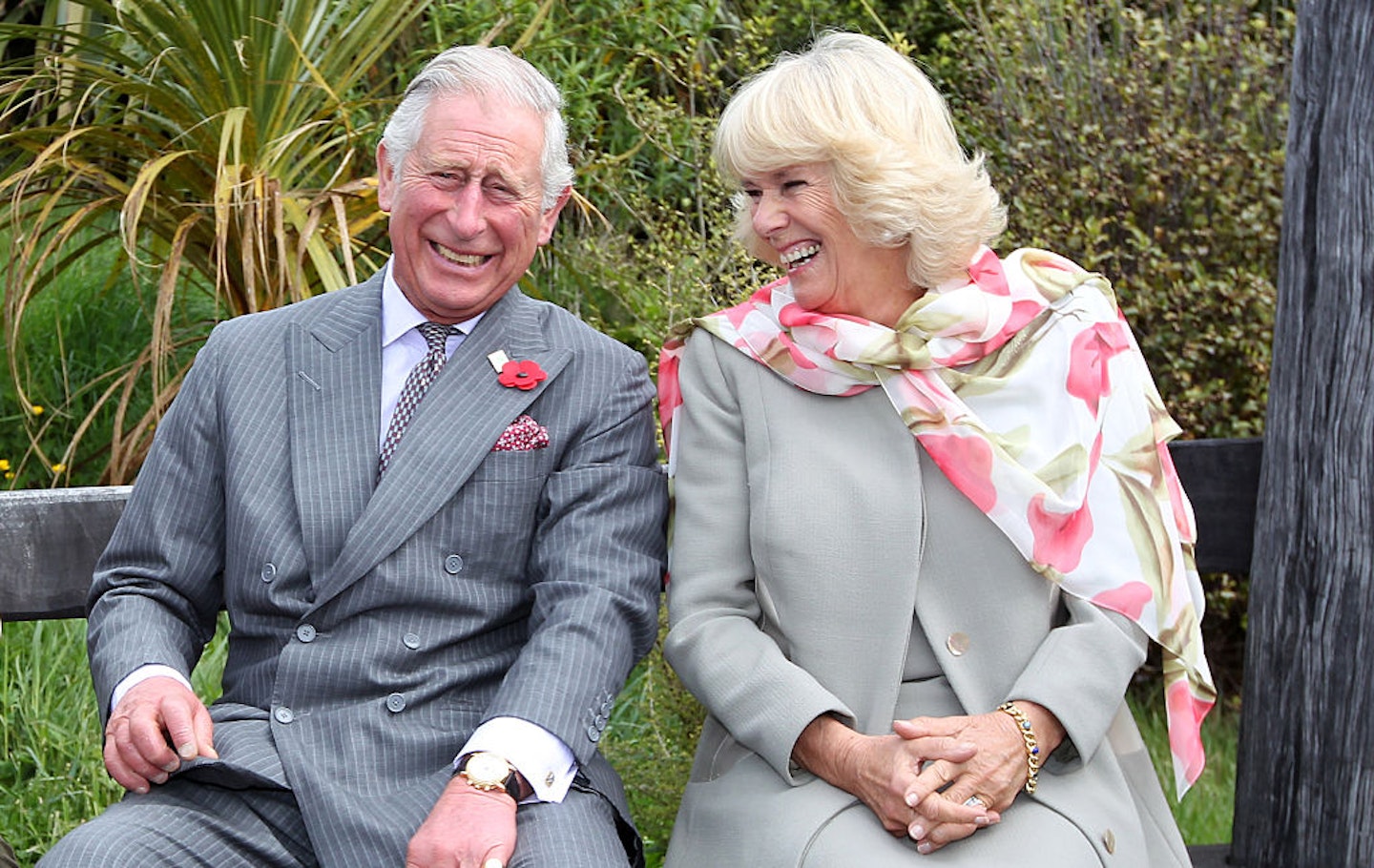In February this year, it was revealed that King Charles III has cancer. Aged 73, speculation about his health has been rife ever since. Somewhat morbidly, search data shows the British public regularly search for 'What happens if King Charles dies?' whenever he is pictured in public. But there are official plans in place, as there were when Queen Elizabeth died in 2022. For King Charles, the codename for how officials will respond is Operation Menai Bridge, and it is a detailed plan of the events that have to happen when a monarch dies.
King Charles' health has meant that he's largely stayed out of the public eye recently and fans are curious as to what King Charles' latest health update is. In February, it was announced that he was undergoing regular treatments for cancer, although it was not disclosed what type of cancer the King has.
‘His Majesty has today commenced a schedule of regular treatments, during which time he has been advised by doctors to postpone public-facing duties,' the Buckingham Palace initial statement read. 'Throughout this period, His Majesty will continue to undertake State business and official paperwork as usual.
‘The King is grateful to his medical team for their swift intervention, which was made possible thanks to his recent hospital procedure. He remains wholly positive about his treatment and looks forward to returning to full public duty as soon as possible. His Majesty has chosen to share his diagnosis to prevent speculation and in the hope it may assist public understanding for all those around the world who are affected by cancer.’

What will happen if King Charles dies?
Should King Charles III die, the day will play out as follows. The first step will be to inform the rest of the royal family, followed by the Prime Minister – currently Rishi Sunak. Eventually the press (and therefore the public) will be informed. A note announcing King Charles’ passing will also be pinned to the gates of Buckingham Palace and flags will be lowered to half-mast.
Prince William will then assume the title ‘King’, but his actual coronation won’t happen until several months later. In the case of King Charles, his coronation occurred in May 2023, eight months after Queen Elizabeth II passed away.
King Charles’ body will then be moved from Buckingham Palace to Westminster Abbey ahead of his funeral where he will ‘lie in state’ as Queen Elizabeth did, with the public queuing to pay their respects.
What is Operation Menai Bridge?
Much like all major royal operations, there’s a name for the plan for what happens when King Charles dies: Operation Menai Bridge. Fun fact: there was actually a reference to Operation Menai Bridge in season four The Crown during the family’s skiing holiday.
The name 'Menai Bridge' comes from a suspension bridge in Wales, presumably in reference to King Charles’ formal title The Prince of Wales.
Whilst Operation Menai Bridge has been in place for a while, plans began in earnest immediately after Queen Elizabeth II’s funeral.
Who takes the throne after King Charles?
According to the line of succession, Prince William is next in the line to take the throne after King Charles III. That means he become King immediately after King Charles III pass away, with Kate Middleton assuming the role of Queen Consort as Queen Camilla did. As with King Charles coronation after Queen Elizabeth's death, there will be another coronation to officially appoint Prince William as King. Coronations usually take months to plan, so it is unlikely to happen straight away. King Charles coronation took place eight months after Queen Elizabeth died, while Queen Elizabeth herself waited 16 months to be officially crowned after her father, King George VI's death.
What is a regency?
At this point, there's no suggestion that King Charles is unable to perform his royal duties, and since his diagnosis has been pictured at his weekly audience with the Prime Minister. But should he become unable to perform his duties then the question of whether a regency is required arises.
The Regency Act (1937) is essentially a royal protocol stating that should the monarch become incapacitated, then their power would transfer to the next royal family member in line to the throne, in this case Prince William, without them have to abdicate the throne. Prince William would essentially have all the powers of King Charles, without the official title.
The last time The Regency Act was required was 200 years ago when eventual King George IV became Prince Regent.
In order for The Regency Act to come into effect, three or more of the following must declare its necessity in writing: the sovereign’s wife aka Queen Camilla in this case, the Lord Chancellor (currently The Rt Hon Alex Chalk KC MP), the Speaker of the House of Commons (Lindsay Hoyle), the Lady Chief Justice (Sue Lascelles Carr, Baroness Carr of Walton-on-the-Hill, DBE, PC) and the Master of the Rolls (Sir Geoffrey Dos). King Charles has no say in the matter and does not need to agree with their decision.
Do we get a bank holiday or day off if The King dies?
As with the death of Queen Elizabeth, the UK will not receive a day off if the King dies however the date of his funeral will become a public bank holiday, as will William’s coronation when he becomes King.
What happens to Queen Camilla if King Charles dies?
Should Queen Camilla outlive the King, she will likely take on the title 'Queen Dowager' which essentially means ‘the widow of a king’.

When Elizabeth II’s mother was widowed by the death of King George VI in 1952, his wife Queen Elizabeth became 'Queen Mother' – a title that Queen Camilla would not be able to take, as William and Harry’s mother was Princess Diana.
As to her role within the royal family, Carolyn Harris - co-editor of the book series English Consorts: Power, Influence and Dynasty - says, 'My supposition is Queen Consort Camilla would likely keep up her charitable roles related to literacy and domestic violence. She could be an honorary head of military regiments, but that would all be the result of lots of discussion with the new monarch.'
In addition, Queen Camilla will be expected to move out of Buckingham Palace and retire to a smaller residence. In 1952, Queen Elizabeth The Queen Mother moved to Clarence House after her husband passed away so it's likely that Queen Camilla will follow suit.
Daisy Hall is a News and Entertainment writer on Grazia.
